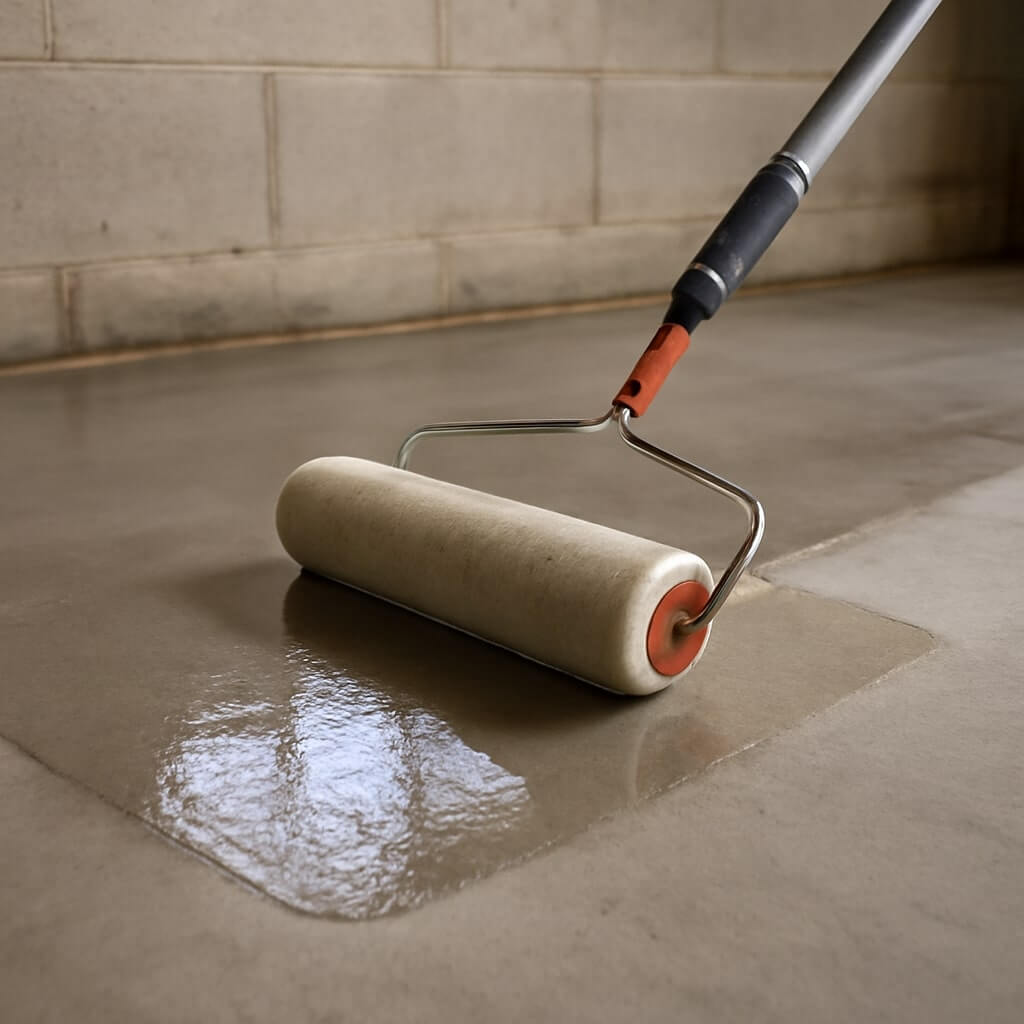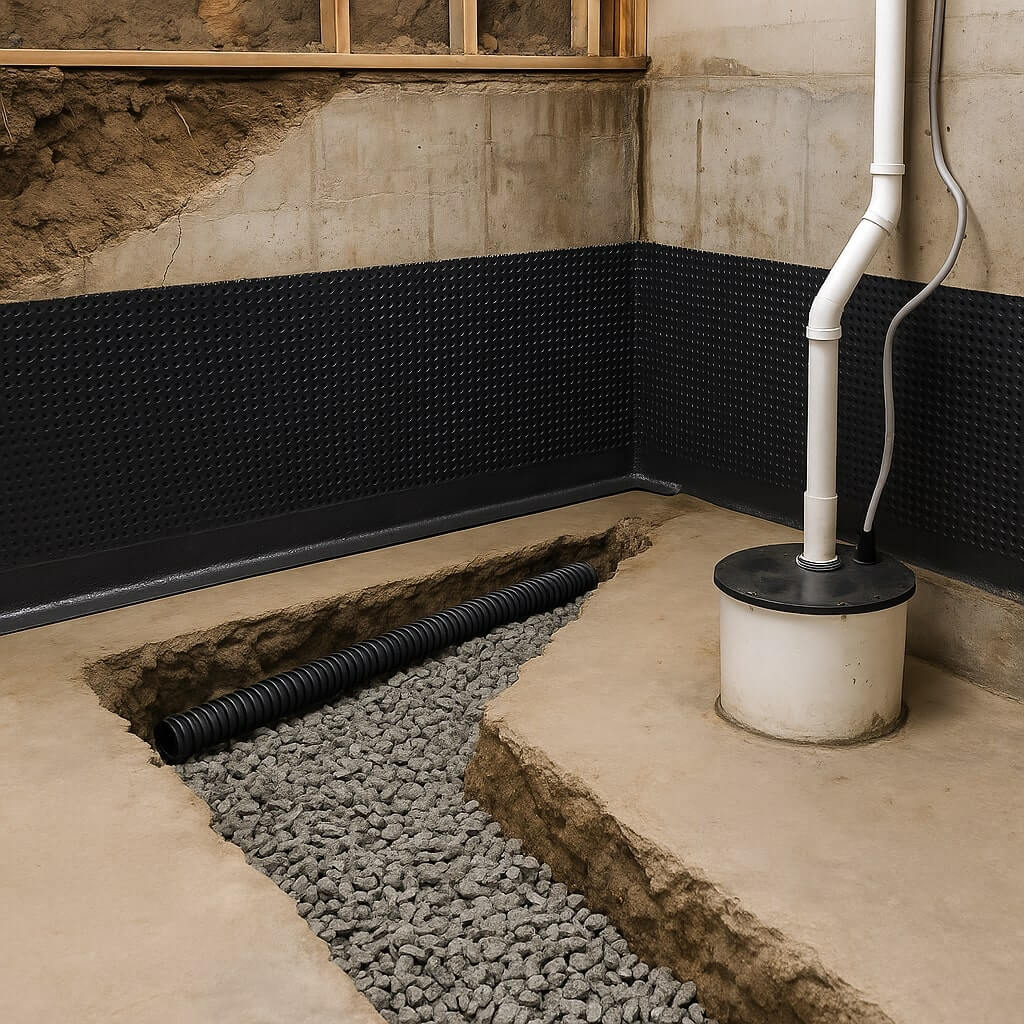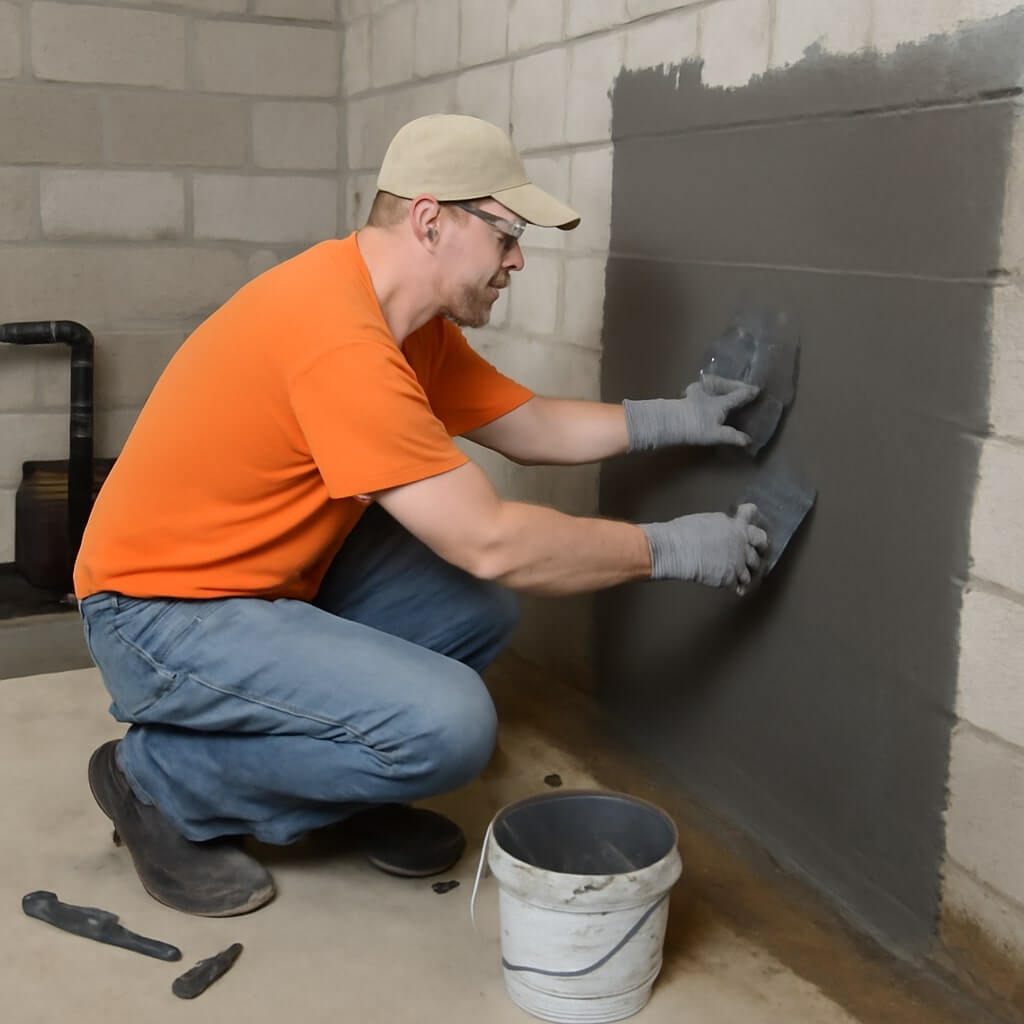Waterproofing your basement floor isn’t just a good idea—it’s essential. A waterproof concrete sealer for basement floors protects against moisture infiltration, mold, mildew, and long-term structural damage. In this comprehensive guide, we’ll explore how to choose the right waterproof concrete sealer, how to apply it, and answer the most frequently asked questions to help you make an informed decision.
What is a Waterproof Concrete Sealer?
A waterproof concrete sealer is a protective coating applied to concrete floors to prevent water absorption and moisture penetration. It forms a barrier that keeps the basement dry, combats hydrostatic pressure, and extends the lifespan of the concrete.
Types of Waterproof Concrete Sealers
1. Penetrating Sealers
These soak deep into the concrete pores and chemically react to block moisture.
- Best For: Long-term protection against water, freeze-thaw cycles.
- Examples: Silane/Siloxane, Silicates.
2. Acrylic Sealers
They create a thin film on the surface and offer decent water resistance.
- Best For: Basements used as living spaces needing a decorative finish.
- Finish: Available in high-gloss, matte, or satin.
3. Epoxy and Polyurethane Sealers
These form thick, durable coatings and are great for high-traffic areas.
- Best For: Industrial or workshop-style basements.
- Durability: Excellent stain, abrasion, and moisture resistance.
Benefits of Using a Basement Concrete Sealer
- Prevents Mold and Mildew: Stops water infiltration that causes biological growth.
- Reduces Dusting and Efflorescence: Keeps your basement cleaner and healthier.
- Improves Durability: Protects from wear and chemical damage.
- Enhances Appearance: Adds a clean, professional finish to your floor.
How to Choose the Right Sealer for Your Basement
| Criteria | Best Option |
|---|---|
| Water Exposure Level | Penetrating or Epoxy Sealer |
| Aesthetic Preference | Acrylic Sealer |
| Budget | Acrylic or Silicate |
| Surface Traffic | Epoxy or Polyurethane |
Step-by-Step Guide: How to Apply a Waterproof Concrete Sealer
- Clean the Surface: Use a degreaser and vacuum for dust-free application.
- Repair Cracks: Fill visible cracks with hydraulic cement or patching compound.
- Dry the Area: Ensure the basement floor is completely dry.
- Apply the Sealer:
- Penetrating: Roll or spray directly.
- Epoxy/Polyurethane: Mix components and apply with roller.
- Allow to Cure: Follow manufacturer instructions (typically 24–72 hours).
Common Mistakes to Avoid
- Sealing a damp or wet floor
- Not repairing cracks or voids before sealing
- Using the wrong type of sealer for your needs
- Applying too thick of a coat (can cause bubbling)
Top Recommended Waterproof Concrete Sealers
- Drylok Siloxane Water Repellent
- Ghostshield Lithi-Tek 9500
- RadonSeal Plus Deep-Penetrating Concrete Sealer
- Armor AR350 Solvent-Based Acrylic Sealer
- Quikrete Epoxy Garage Floor Sealer
Frequently Asked Questions (FAQs)
How long does waterproof sealer last on a basement floor?
Can I apply the sealer myself?
Will sealing the basement floor stop all leaks?
Is it safe to use epoxy sealer in a living basement?
Should I seal my basement floor before installing flooring?
Final Thoughts
Choosing the right waterproof concrete sealer for your basement floor is a crucial investment in your home’s durability and safety. Whether you’re looking to create a livable space or simply protect your foundation, sealing your basement floor should be at the top of your maintenance checklist.



